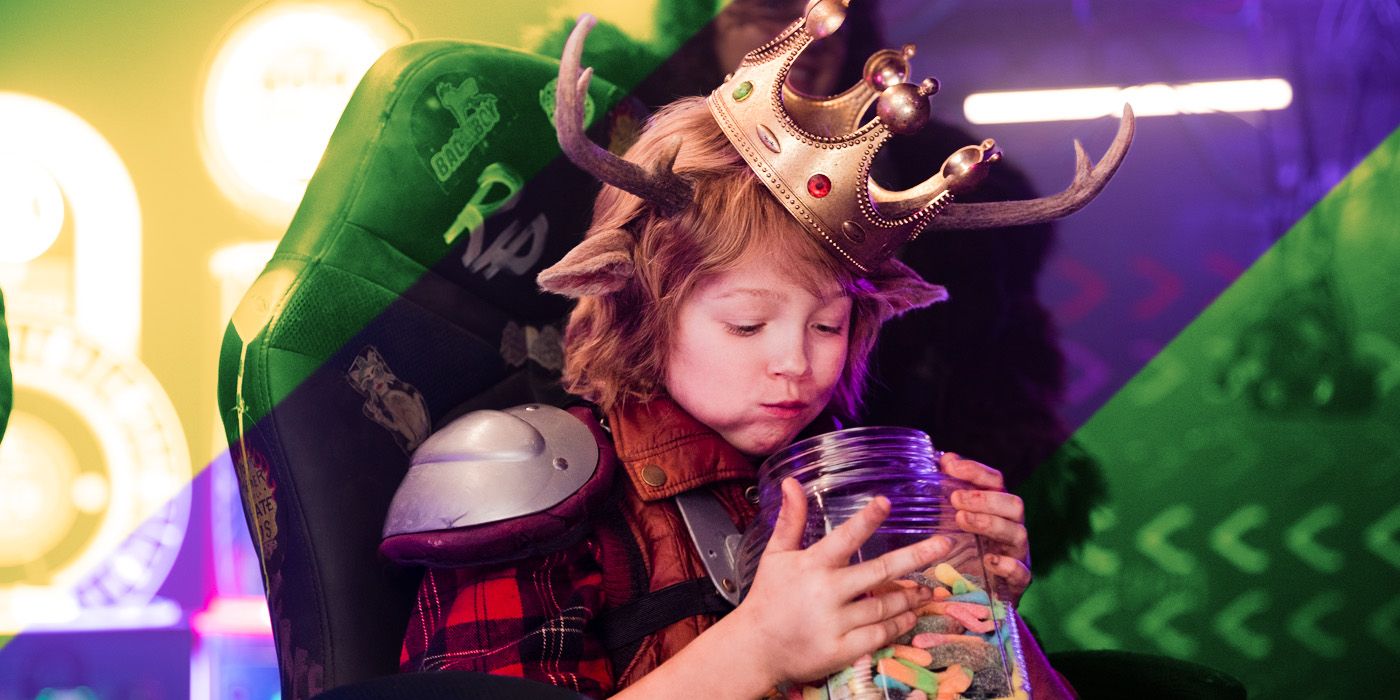
Netflix fantasy series Sweet Tooth may be set in a world where human civilization has crumbled, but it still has an excellent soundtrack. From throwback hits like Blondie's "Heart of Glass" and Grateful Dead's "Truckin'" to more modern tracks like "Dirty Paws" by Of Monsters and Men, the songs all have a meaningful connection to the story.
Based on the comics by Jeff Lemire, Sweet Tooth follows a hybrid deer-boy called Gus as he ventures out into the world in search of his mother, with the help of a wanderer called Tommy Jepperd (affectionately called "Big Man" by Gus, who in turn is called "Sweet Tooth" by Tommy). The comics were adapted for TV by Jim Mickle (We Are What We Are) and the score was composed by Jeff Grace, who has previously collaborated with Mickle on films like Stakeland and Cold in July.
Unlike the jukebox soundtracks of other Netflix Originals like Umbrella Academy and Army of the Dead, Sweet Tooth uses songs sparingly and to great effect, showcasing indie artists like Lord Huron and Banners. Here's a complete guide to Sweet Tooth's soundtrack, and what the songs mean.
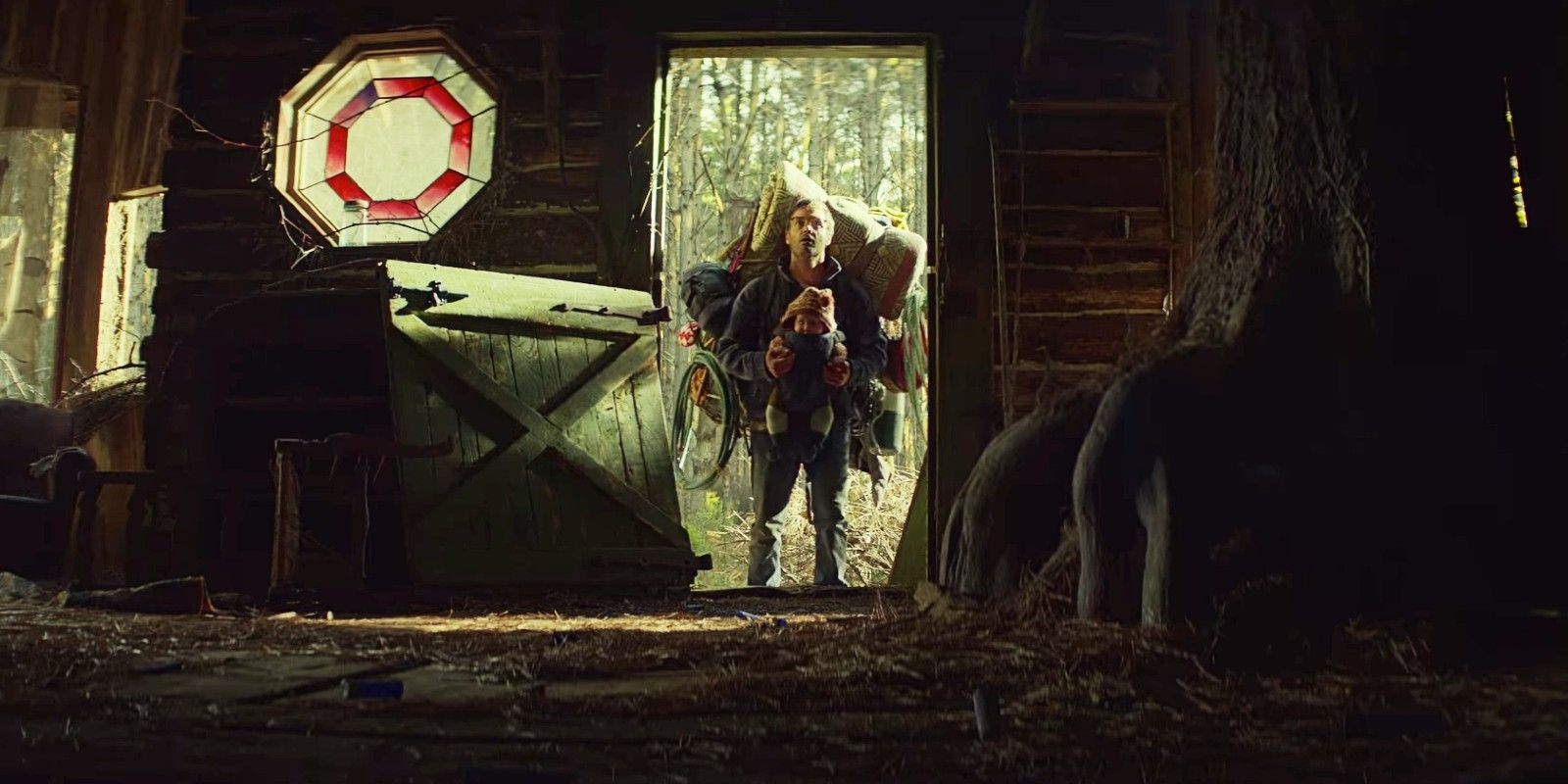
The first song featured in Sweet Tooth is "Maple Sap," an original track composed for the series. The title of the song references the sweet syrup of the maple trees that Gus loves so much, earning him his nickname. The lyrics ("Winter's wood is cut/Three cord I stacked out back of my house/Is it enough to feed on through bitter wind?") describe the challenges of living out in nature, away from civilization, like "Pubba" and Gus do after the Great Crumble. The song plays over the scene in Sweet Tooth episode 1, "Out of the Deep Woods," when the father and his deer-baby son first arrive in Yellowstone National Park, and Pubba works hard to turn a rundown cabin into a home for them.
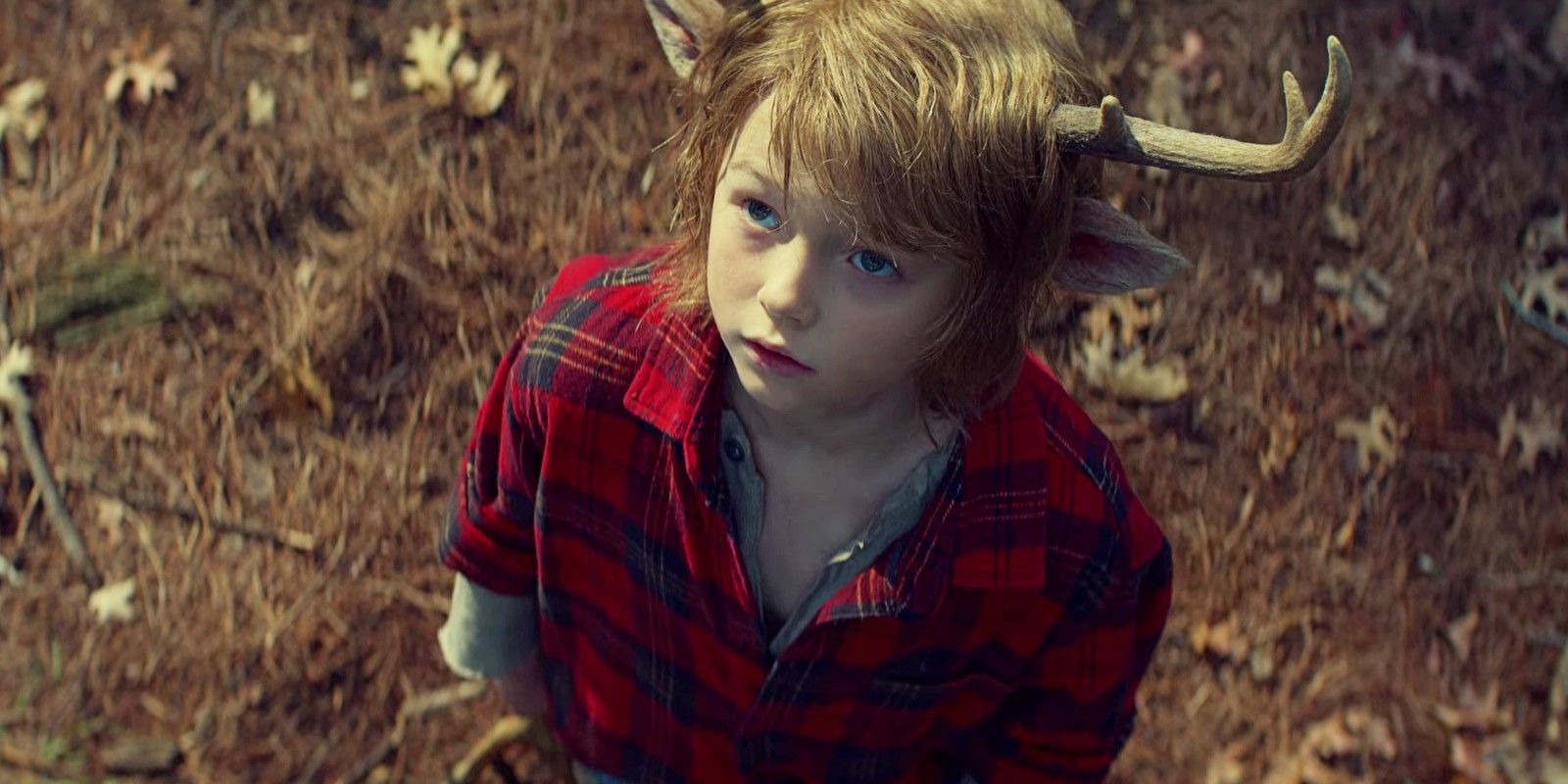
A major theme of Sweet Tooth is mankind's destruction of nature. The show frames the Great Crumble as something that has allowed the planet to heal, with captive zoo animals running free and the hybrid children capable of living independently in the wild. As Gus makes the decision to follow Tommy out into the world and search for his mother at the end of Sweet Tooth episode 1, "Dirty Paws" by Of Monsters and Men plays. This song's lyrics describe a war that scars the natural world "The forest that once was green/Was colored black by those killing machines," but ultimately ends with nature itself rising up to fight back ("She and her furry friends/Took down the queen bee and her men"). Within the context of the show, "Dirty Paws" fits with the theory later put forward by Bear: that both the hybrids and the Sick were nature's way of defending itself from mankind's greedy and destructive tendencies.
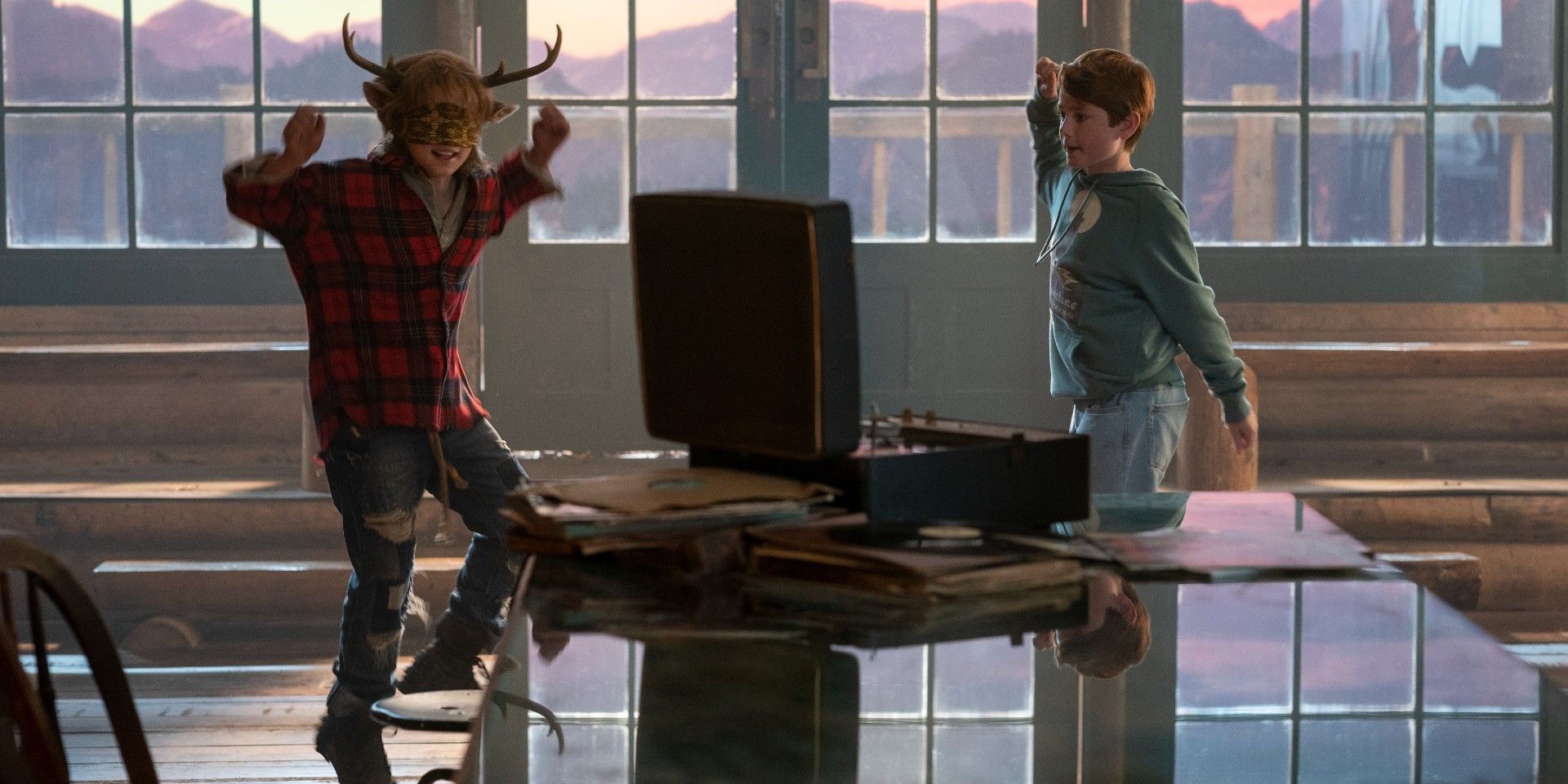
Growing up in the woods without any electricity or record players, Gus doesn't hear music for the first time until he arrives at the Yellowstone Visitors Centre in Sweet Tooth episode 2, "Sorry About All The Dead People." The family living there, the Andersons, are fortunately hospitable rather than hostile, though they are a bit wary of the deer-boy and his large companion. Gus becomes friends with the Andersons' son, Rusty, who plays him a record: The Temptations' "Can't Get Next To You."
Originally a song about unrequited love, it has a double meaning in Sweet Tooth through the show's in-universe pandemic (a story element that accidentally ended up being very timely). The Andersons initially wear face masks to protect themselves from the Sick, and in the same episode Dr. Singh visits a local clinic where social distancing measures are in place. For viewers who have spent more than a year in lockdown, "Can't Get Next To You" is relatable in more ways than one.
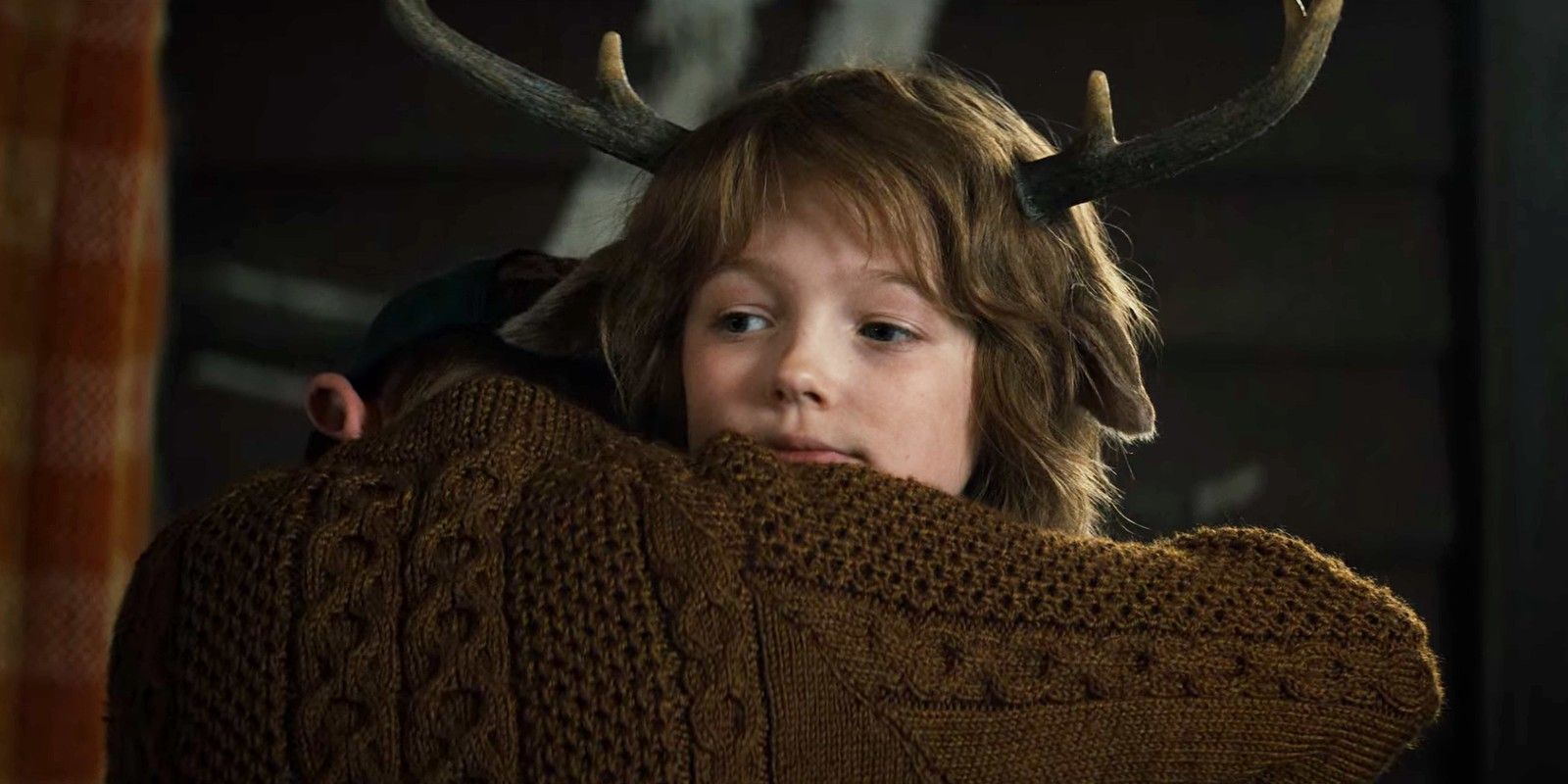
Sweet Tooth has been praised by critics for acting as a counterweight to TV programming that has been overwhelmingly cynical, grim and edgy - particularly in post-apocalyptic settings. Gus and the other hybrid children represent hope for the future, and this is highlighted in the friendship between Rusty and Gus, neither of whom have ever had a friend their own age before. Patsy Cline's "If I Could See The World (Through The Eyes of a Child)" is an ode to this innocence and childlike curiosity that people lose when they become adults, and how children like Gus and Rusty don't see the world after the Great Crumble as broken or damaged. As Patsy sings, "If I could see the world/Through the eyes of a child/What a wonderful world this would be."
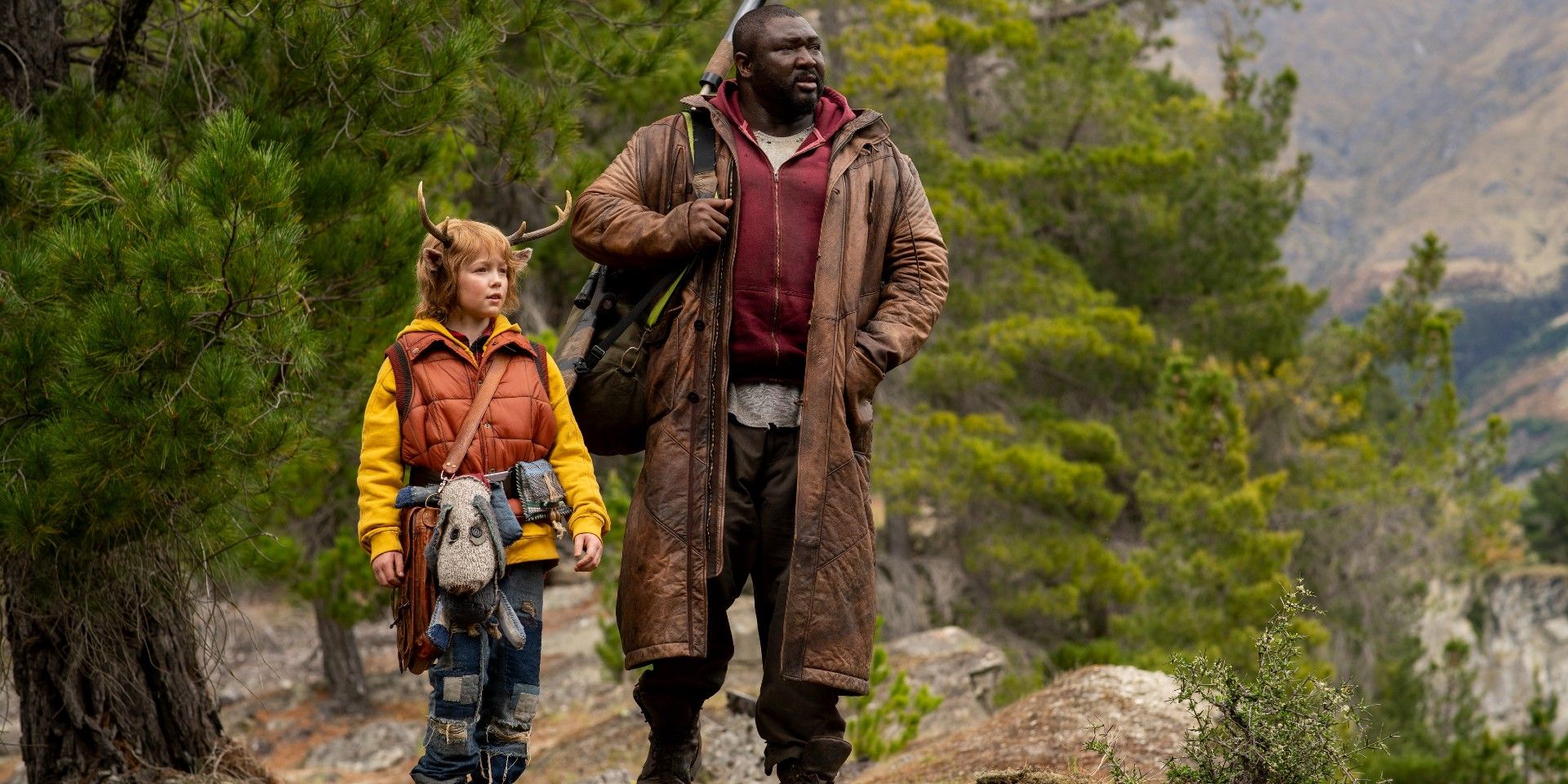
As Gus and Tommy's journey resumes at the start of Sweet Tooth episode 3, "Weird Deer S**t," their travels are scored by Lord Huron's "Ends of the Earth." It's a song about venturing out into the unknown and, more importantly, having someone to go on that adventure with ("To the ends of the earth, would you follow me?/There's a world that was meant for our eyes to see"). While the sight of Sweet Tooth and Big Man traversing the beautiful landscape is certainly uplifting, the song's lyrics also foreshadow the troubles that lie ahead for them ("Wayfarin' strangers and all kinds of danger/Please don't say I'm goin' alone.")
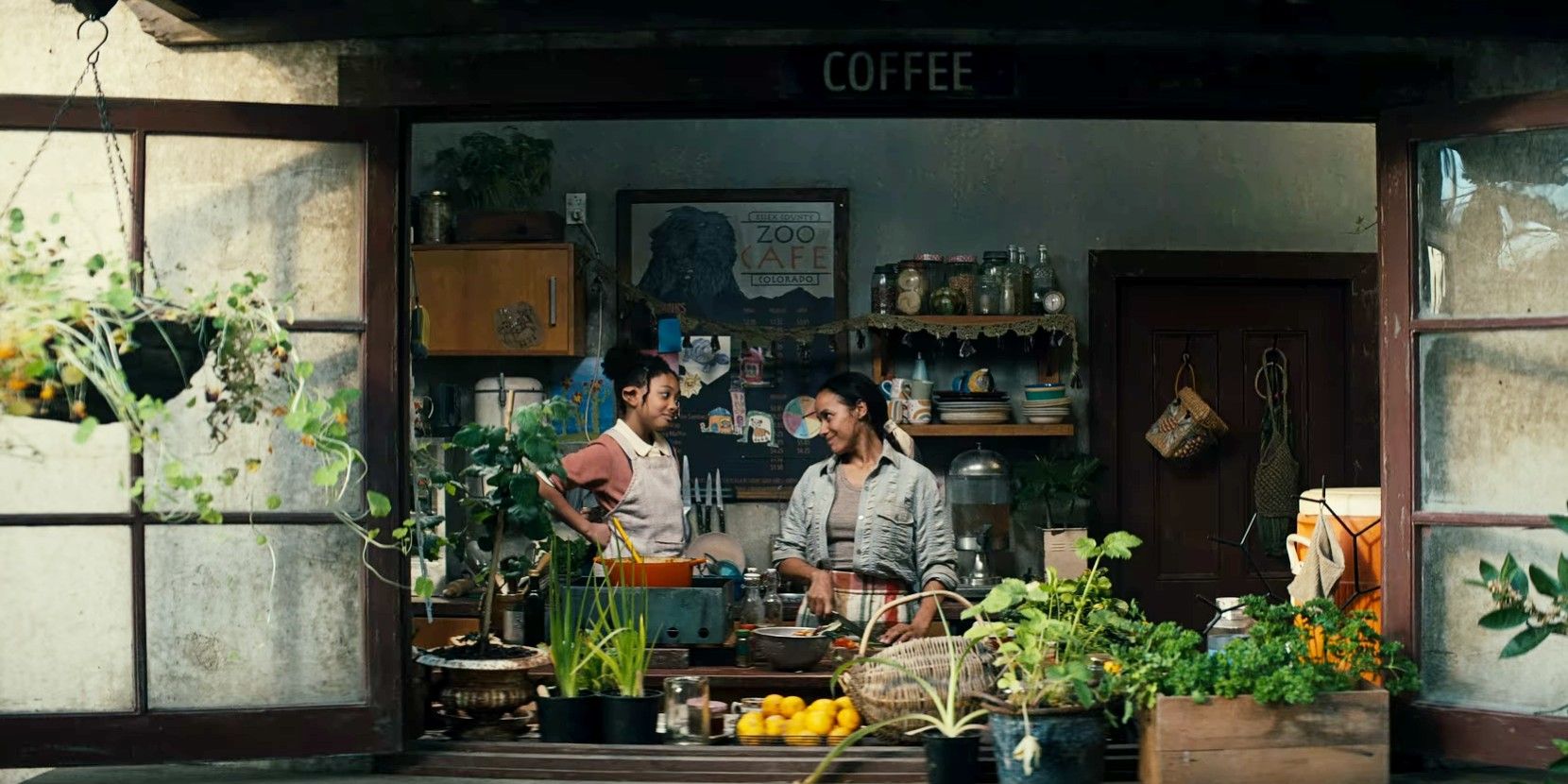
In episode 4, "Secret Sauce," Sweet Tooth catches up with former therapist Aimee and her adopted pig-girl daughter, Wendy. As the two of them share cheerful family moments like hanging out in the garden and cooking dinner, Marlon Williams' song "We're All Young Together" plays. The song is about music bringing family and neighbours together, no matter what their age ("And her momma sings too/And the old man taps his shoe"). It's a track that reflects how Aimee finding Wendy on her doorstep a decade ago gave her a new lease on life, and how they're as close as any biological mother and daughter - closer, in fact, because for many years they've only had each other.
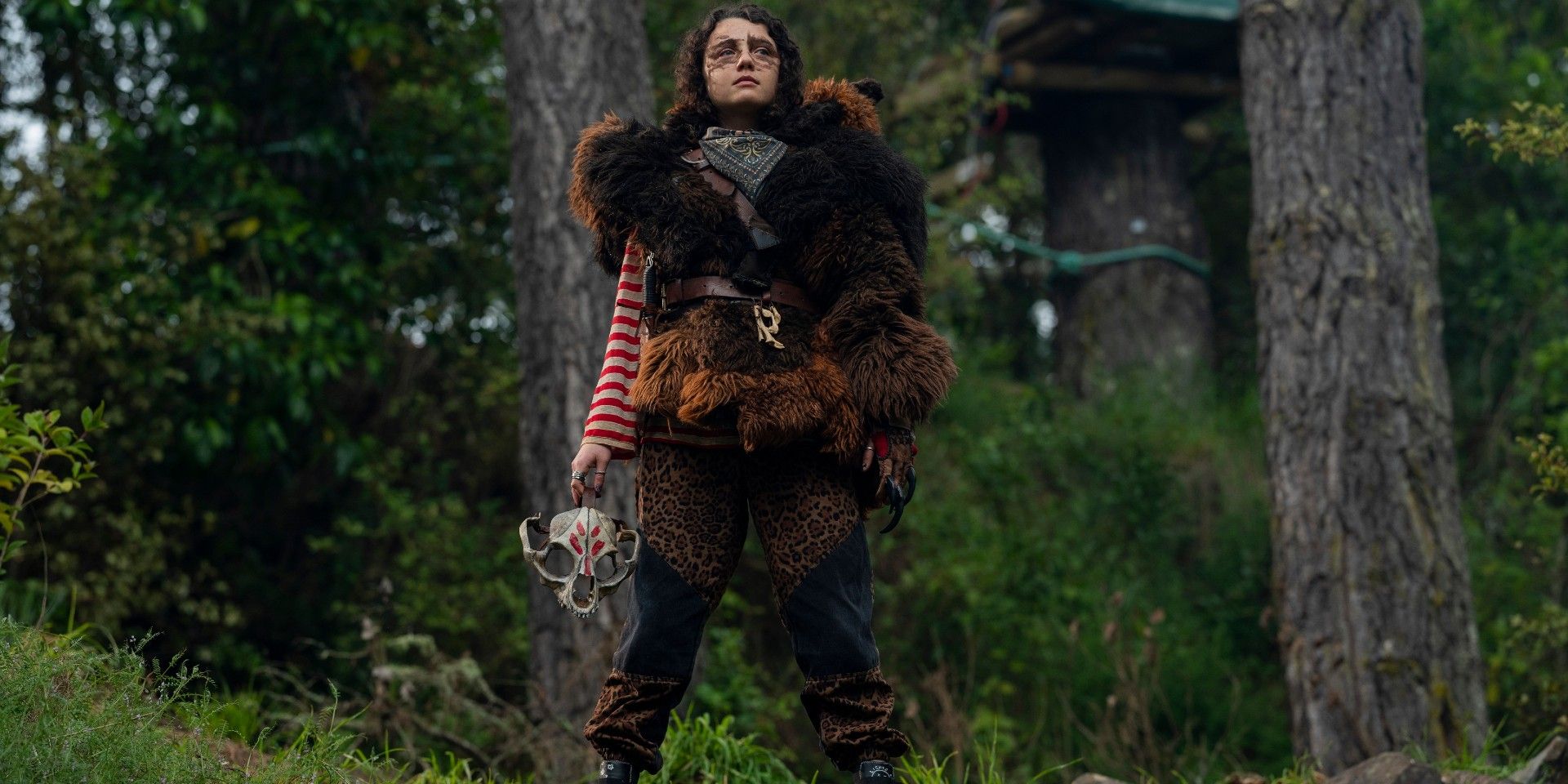
Not long after Gus is introduced to the Animal Army in Sweet Tooth episode 4, the group of vigilante hybrid defenders undergoes a change of leadership, with Tiger wresting control away from Bear. The song that plays as Tommy and Gus escape and Bear realizes she has to leave the family she created behind is "Got It In You," by Banners. The lyrics are addressed to someone who has reached a low point and who fears that they will not survive it, but also offer reassurance that this person is stronger than they think: "Now you think you're gonna drown/You can't tell that you're bigger than the sea that you're sinking in."
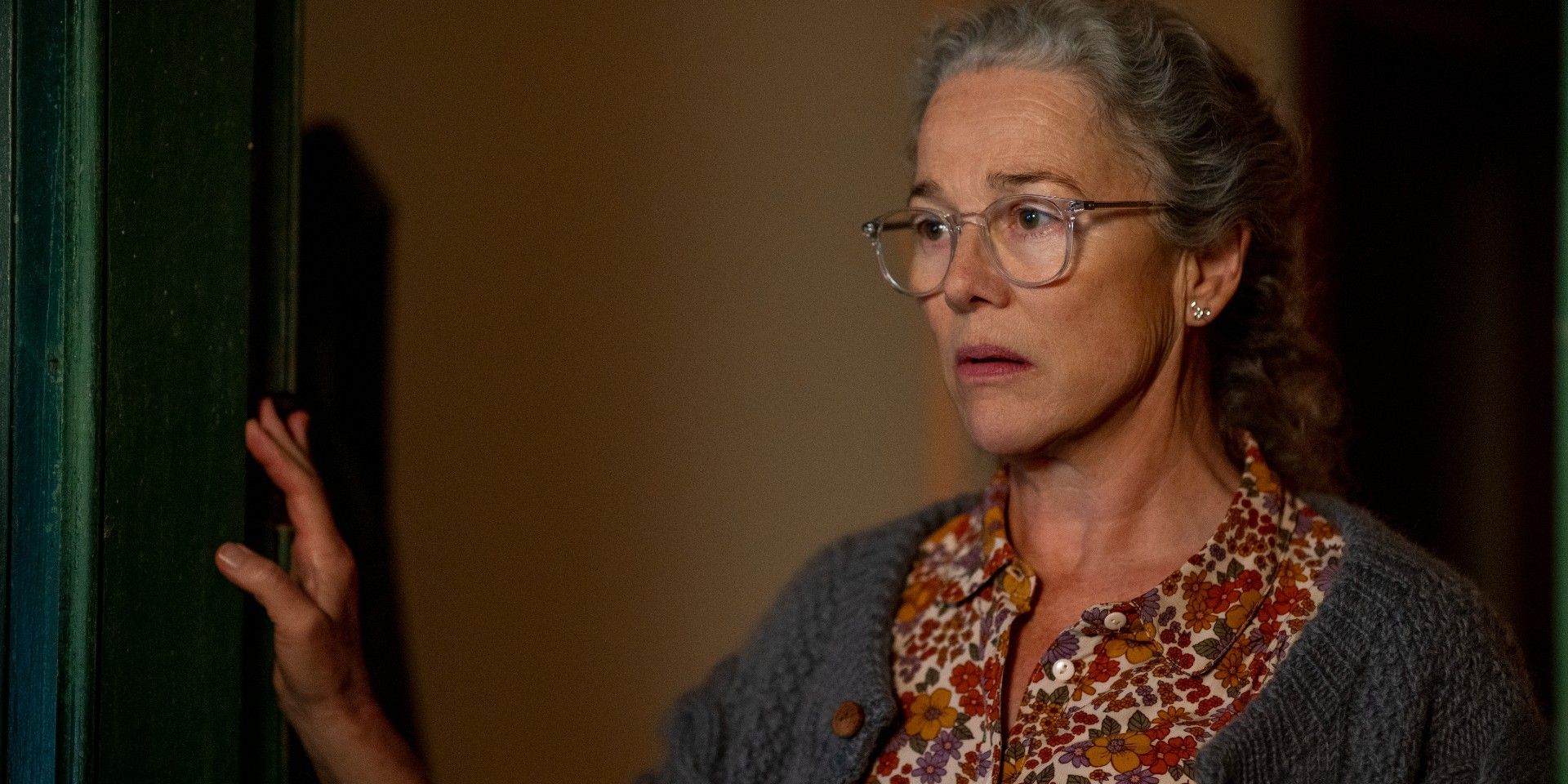
Sweet Tooth episode 5, "What's In The Freezer?", opens with the reveal that Dr. Bell lied about her cancer diagnosis in order to get out from under the thumb of General Abbott - a plan that fails when he shows up at her new home. The scene features the classic pop hit "Heart of Glass" by Blondie, which laments a love born out of deception ("It seemed like the real thing but I was so blind/Mucho mistrust, love's gone behind"). It's a fitting tune, given that Dr. Bell effectively conned Adi into taking over her clinic and the horrifying experiments she was conducting on hybrid children.
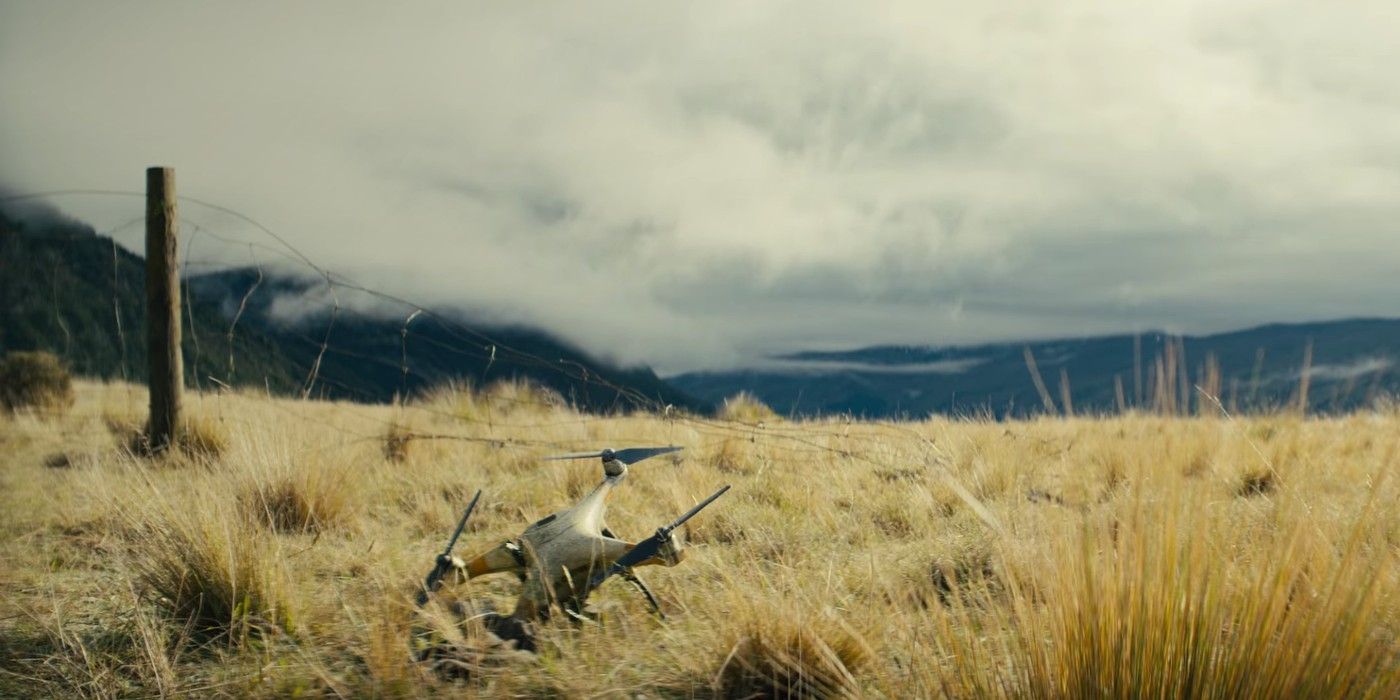
As Tommy, Gus and Bear race to catch the train at the start of episode 6, "Stranger Danger on a Train," alt-country singer Marlon Williams' track "Hello Miss Lonesome" plays. It's a song about loneliness, personified by a woman who periodically passes through town and through the hearts of everyone. More specifically, it's a song about how no amount of riches can save a person from loneliness ("There’s gold in the river and diamonds in the mines/Miss Lonesome knows that they ain’t worth a drunkard's lucky dime.") It's a fitting song for a world where cash currency has become worthless - but more importantly, it's a very fun song to chase a train to.
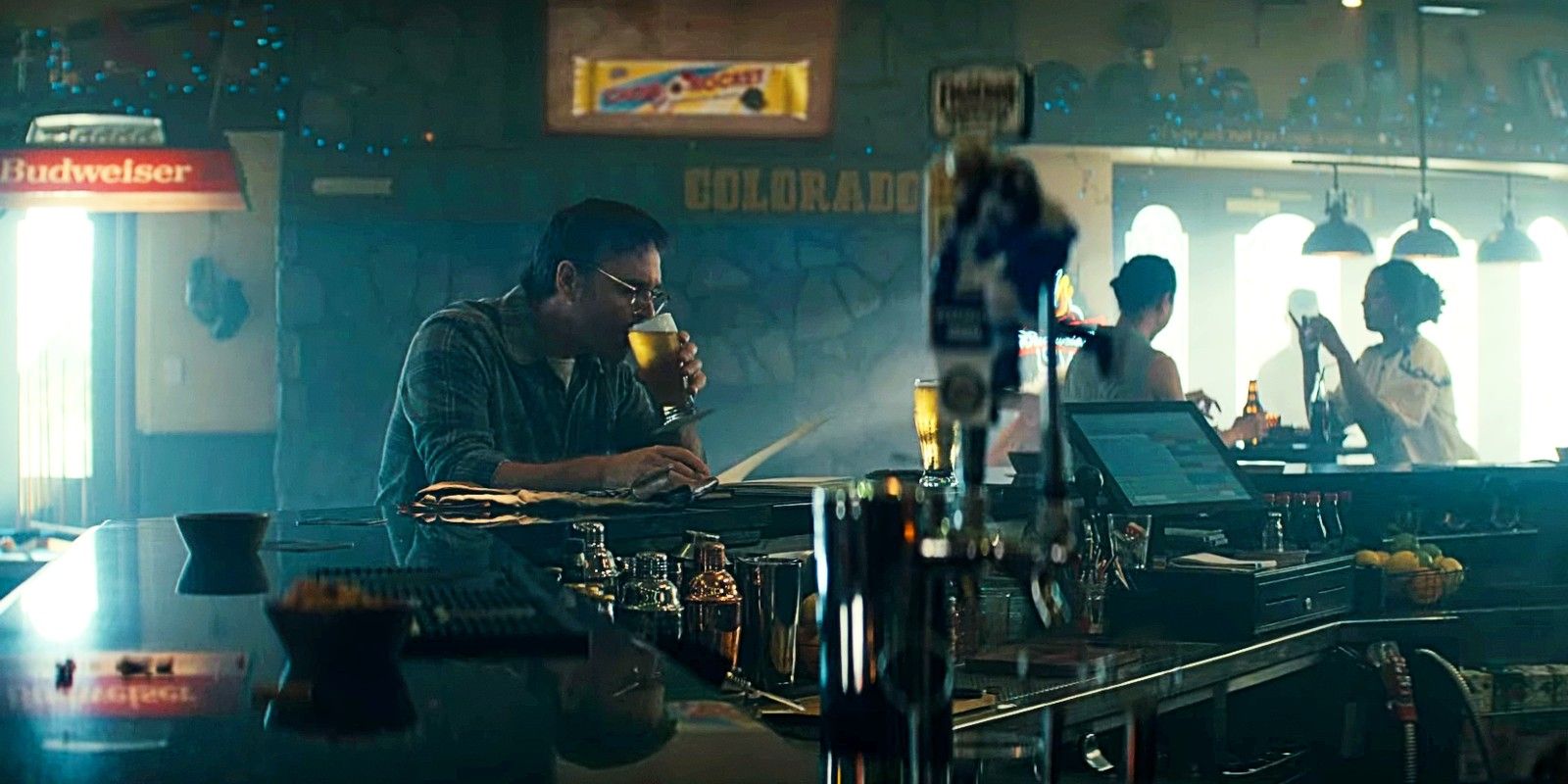
Sweet Tooth episode 7, "When Pubba Met Birdie," features two songs by the Grateful Dead, both of them diegetic. Pubba (whose real name is revealed to be Richard Fox) and Birdie share a love for the band, and bond over it when they meet by chance outside of work at a local bar. "Truckin'" is about a chaotic and often gruelling cross-country music tour that Grateful Dead did, but more broadly it's a song about the excitement and exhaustion of always travelling to new places. It has particular significance for Richard, who admits to Birdie that his job at the lab was not part of is long-term plan, but he stuck with it because it "pays the bills." It also foreshadows the great journey that Richard will soon be going on.
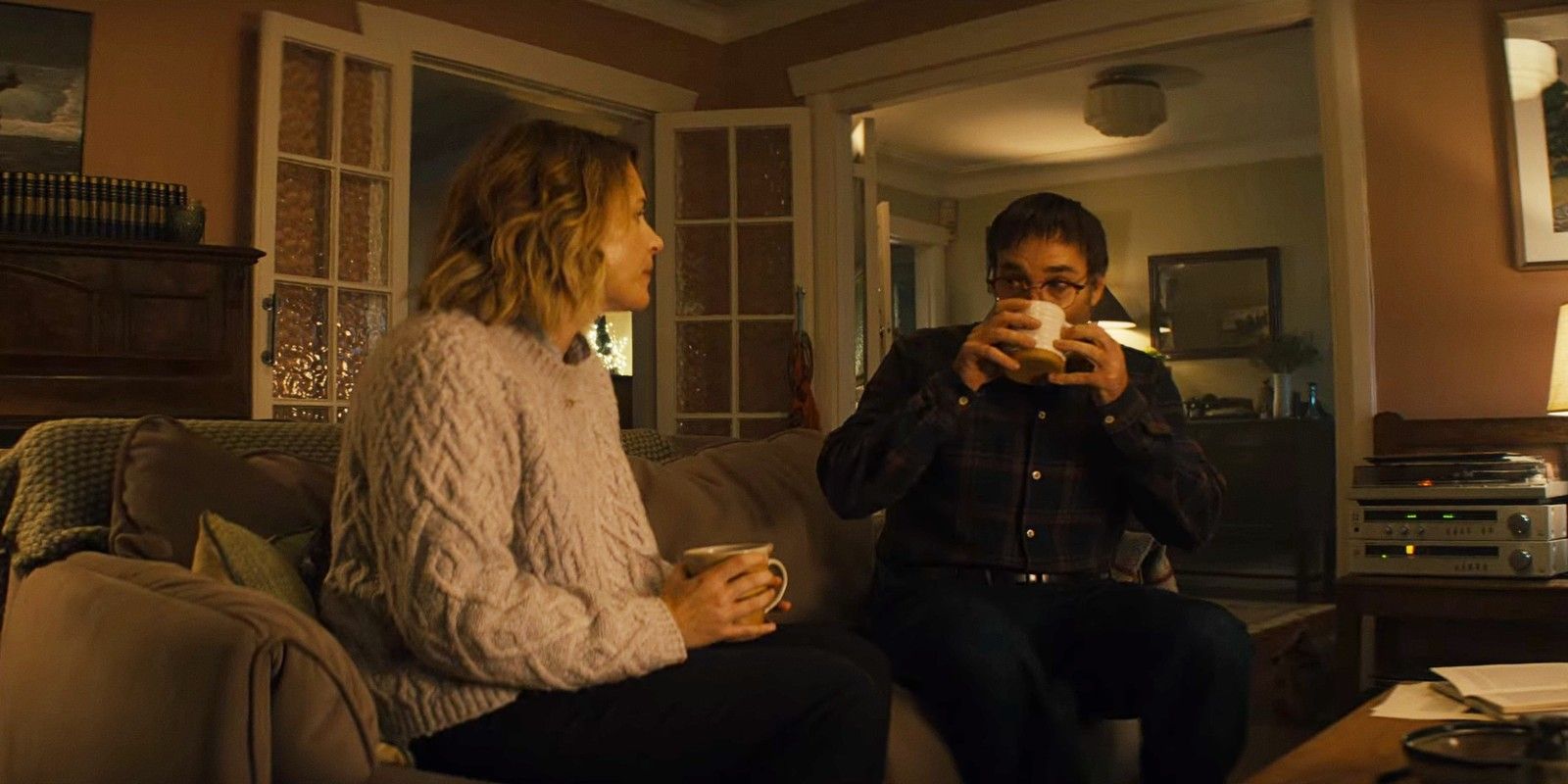
The second Grateful Dead song in "When Pubba Met Birdie" is "Ripple," which was the B-side to "Truckin'" - a detail that reflects Richard and Birdie's immediate bond. The lyrics are loosely about the power of music in the air, and about the importance of choosing one's own path in life, which compliments the journeying theme of "Truckin'". Yet they also foreshadow that Richard will be setting out on his imminent adventure without Birdie ("And if you go, no one may follow/That path is for your steps alone."
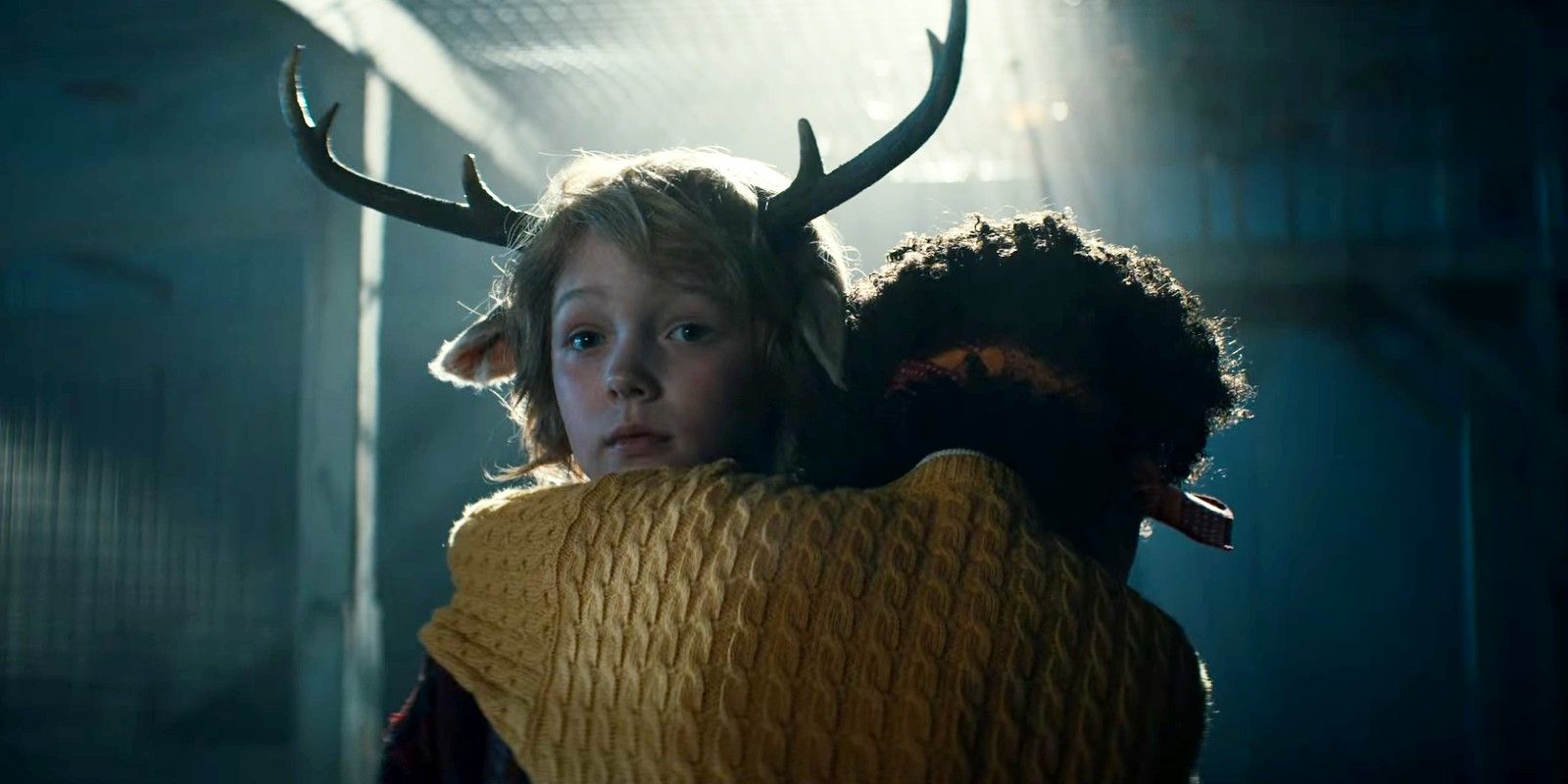
"Auld Lang Syne" is sung three times throughout Sweet Tooth season 1: first by Adi and Rani's neighbours when they burn down poor Doug's house with him inside it, and again when the neighbours burn down Adi and Rani's house with them inside it. It's an old Scottish folk song that's best known for being sung on New Year's Eve, just after the clock strikes midnight. "Auld Lang Syne" is an old Scots phrase that loosely translates as "old times" or "days gone by." The song is about reuniting with an "auld acquaintance" that the singer has not seen for a long time, reflecting on their journeys in life both together and apart, and drinking a "cup o' kindness" for old time's sake.
It's a song that effectively captures Sweet Tooth's tone of both celebration and melancholy: mourning all the lives that have been lost, but also being hopeful for the future. The first two times it is sung as a funeral song, but its final appearance in the show is in the finale, "Big Man," when Gus meets other hybrid children for the very first time and finds a new family in the darkest of places.
source https://screenrant.com/sweet-tooth-soundtrack-songs-explained/


0 comments: